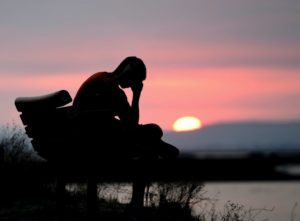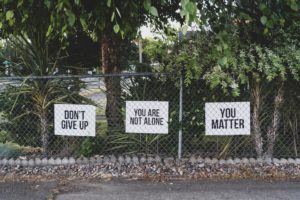
Whether people get sick from coronavirus or not, the threat is wrecking emotional havoc. Besides worry and loneliness, people are riddled with guilt. Time on their hands prods them to do “more” of something—writing, home repairs, personal development. But angst immobilizes many people from doing anything.
Someone said worry is like a rocking chair. It gives you something to do but doesn’t get you anywhere.
So I tried a Twitter experiment.
A few examples:
• March 23: If you feel overwhelmed with life or your WIP, do just 1 next thing. Call a friend (NOT to complain). Scour your WIP for just 1 thing–whether it’s building tension or getting rid of “the gaves” (“gave a look” >> glanced, scowled).
• March 26: Good additions for your do-at-home to-do list: 1) Update your resume. 2) Update your software.
• March 27: Thoughts for today: 1) Gate your information flow. 2) Instead of hoarding and hiding, be generous in whatever way you can. 3) Anxiety and gratitude can’t share the same spot. 4) For every 5 min. of news, listen to 10 min. of praise music.
In every case, people latched onto those tweets with gusto, posting more hearts and positive comments than anything I’d tweeted in weeks. “Great idea!” “Thanks for the tip!”
I didn’t say anything earth-shattering. But all my tweets had one thing in common.
Do just one next thing.
In the face of overwhelming circumstances or daunting tasks, we need to ask ourselves what to focus on—and then do just that one next thing.
Jesus did that as He headed into Palm Sunday. Luke 9:51 says He steadfastly set his face toward Jerusalem. The Greek word for “steadfastly” means “to fix in place; secure or firmly establish in a way that eliminates vacillation.”
That must have dumbfounded His disciples. Until now, Jesus had avoided Jerusalem except to observe Jewish holy festivals (which He’d attended secretly). Now He was doing the opposite. He left details like transportation and meal planning to His disciples. He left the biggest details in God’s hands.
Jesus also tried to enlist help from the Samaritans—but they refused (Luke 9:51-53). Why would Luke include that detail?
A quick flashback to the results of Jesus’ encounter with the woman at the well (John 4:39-41, BSB) will help:
“Many of the Samaritans from that town [Sychar] believed in Jesus because of the woman’s testimony … So when the Samaritans came to Him, they asked Him to stay with them, and He stayed two days. And many more believed because of His message …”
Clearly, Jesus once had support in Samaria. Had it endured? Perhaps not enough to overcome the centuries-old hatred between the Samaritans and Jews.
Why is the Samaritans’ refusal important to us?
Because Jesus didn’t dwell on it. He didn’t wonder why that detail fizzled. He didn’t attempt any damage control. (He did rebuke His disciples’ commentary on it.)
Jesus focused only on one next thing: going to Jerusalem.
Oh, if we had that same focus!
We’re simultaneously saint and sinner. We live in a tension between trusting God and wishing things were different. Add today’s global catastrophe, and it can overwhelm us to the point where it’s hard to focus on anything.
“Do just one next thing” grounds us while lifting us above our present reality.
It did the same for Jesus.
It got Him to Jerusalem. Through the Last Supper. Past the Garden. Beyond two kangaroo courts. And to the Cross.
Christ’s example also proclaims there’s another chapter beyond that one next thing.
While the disciples cowered in a locked room, Jesus opened tombs and breathed new life into the world. With God’s overcoming power and love, Jesus’ doing one next thing became our salvation.
HE is our present reality and future hope.
I pray we grasp that truth anew during this Holy Week and through the uncertain weeks to come. As we pray for physical healing and spiritual restoration, let us also respond to God’s nudge to do that one next thing.





Leave a Comment